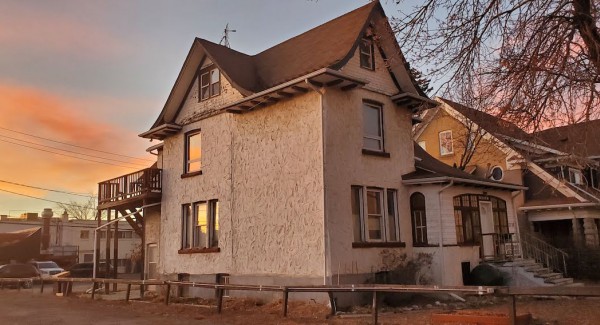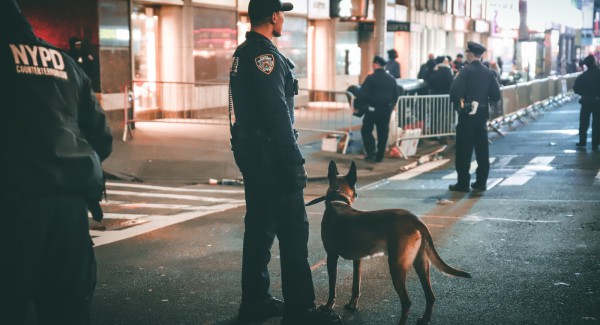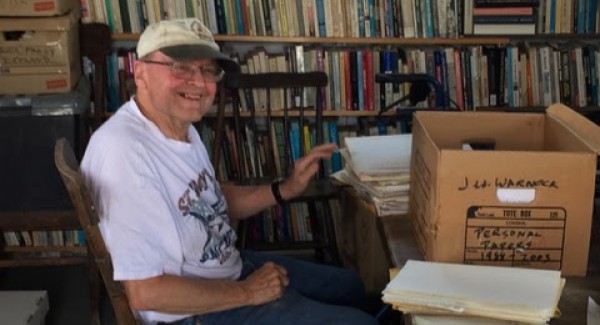Regina Municipal Election 2020: Wascana Park

In preparation for Regina’s 2020 municipal election, the Sask Dispatch asked progressive community members, activists, and experts to pick one pressing issue facing the city, and write about how to address it. Jim Gallagher weighs in on keeping commercial development out of Wascana Park.
How long have you lived in Regina and what ward do you live in?
I have lived in Regina for 60 years and currently live in Ward 3. I have lived there for 11 years now. I have also lived in Wards 1 and 2. All three wards border on Wascana Centre.
What is your occupation?
I’m a retired high school teacher.
The consensus among citizens who frequent the park is that it has fallen into a state of disrepair and is not receiving the attention that the seat of the provincial government and the most valuable asset in the city of Regina requires.
How have the mayor and council approached the subject of the park over the past four years? Do they have plans to invest in it in the future?
The issue of Wascana Centre – particularly that of commercial developments in the Centre contrary to the Acts, master plans, and bylaws that govern the park – has been prominent on a few occasions. A three-part motion was passed unanimously by council on August 27, 2018, opposing any further commercial development in the park. The Conexus project had already been approved. This motion required the mayor to write to the Provincial Capital Commission opposing such developments if they did not comply with the master plan and requesting that full public consultations be commenced to address the future development, stewardship, and governance of the Centre.
Unfortunately the city had to express these points through an appeal rather than through the voice they had previously held on the Wascana Centre Authority (WCA) board when, along with the University of Regina they controlled 55 per cent of the votes on the board. That board was dissolved by the provincial government on June 21, 2017 and replaced by a board on which the Provincial Capital Commission (i.e. the provincial government) controlled 60 per cent of the votes.
What kinds of political, social, and economic factors do you think play into the city’s governance of Wascana Park?
The financial cost of maintaining and developing Wascana Centre is substantial as it is a very large urban park with many features and facets requiring attention. At this time it is unclear exactly what the city’s monetary commitment will be because public consultations that would determine the actual makeup and ownership of the Centre, were never held – even though , the provincial government promised them in 2017. The consensus among citizens who frequent the park is that it has fallen into a state of disrepair and is not receiving the attention that the seat of the provincial government and the most valuable asset in the city of Regina requires. Two stories on the CTV supper news addressed the generally unkempt state of the Centre.
The great value of Wascana Centre is that it serves multiple purposes and cuts across all demographic boundaries – political, economic, cultural, age, and education.
How does attention or lack of attention to this issue impact the city as a whole? Who is impacted the most?
The great value of Wascana Centre is that it serves multiple purposes and cuts across all demographic boundaries – political, economic, cultural, age, and education. The Centre was established by an Act of the legislature passed unanimously in 1962 and thrived for 55 years through every change of government until 2017 when the Act was repealed. Since then the park has suffered in numerous ways. This needs to be redressed before deterioration sets in and we lose this priceless asset.
The most noticeable change of the past few decades is what a remarkable diversity of people now use the park. The area around the lake has become its own mosaic of people from all over the world. This reflects another of the wonderful qualities of the Centre – the ability to bring people together from every imaginable background.
Do residents have any power to set the agenda with the city on this issue?
Residents have the power to bring concerns and items to the council agenda, but the problem lies in the now token representation the city holds on the Provincial Capital Commission board that governs the park. Clearly, the intention of the provincial government in 2017 was to remove any impediments to their ability to make unilateral decisions. Among other things, this has resulted in a highly questionable matter involving a major commercial development (Brandt/CNIB) that seems to have been improperly influenced by the relationship between the current provincial party in power and one of their closest friends and supporters in the business community. The proposal, along with the recent Conexus development, was criticized in the Provincial Auditor’s Report in December 2019 as not complying with the authority of the Centre. In other words, the provincial government is violating its own laws and the city has little power to stop them, thanks to the changes that have been made to the makeup of the board.
Civic elections of course do not usually hinge on one issue, but the matter of Wascana Centre, Regina’s most valuable asset and attraction, an urban development that has gained international reputation, is of great importance and should be prominent in the minds of the voters and the platforms of the candidates.
Are there particular candidates for mayor or council who you think would do well at addressing this topic?
The best way to answer this question is to directly ask each candidate for his or her opinions about the future development of the Centre, how they feel about commercial developments that don’t comply with the legislation and master plans and specifically whether they would support or oppose the ongoing proposal to construct the Brandt/CNIB building. Civic elections of course do not usually hinge on one issue, but the matter of Wascana Centre, Regina’s most valuable asset and attraction, an urban development that has gained international reputation, is of great importance and should be prominent in the minds of the voters and the platforms of the candidates.



